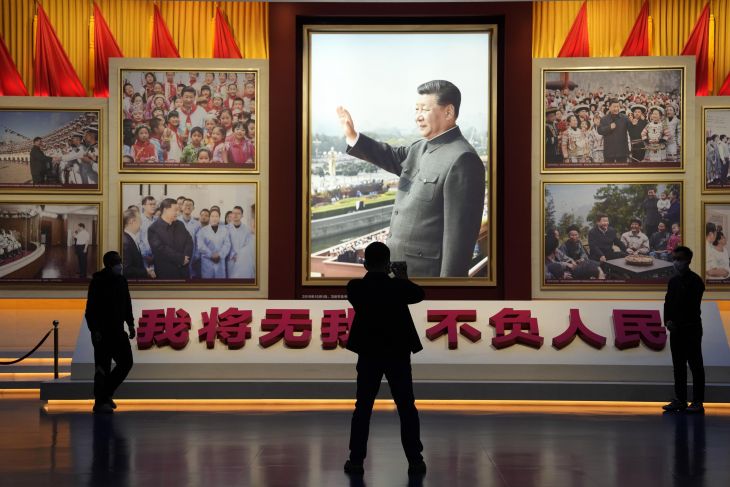In 2012, Xi Jinping was elected General Secretary of the Chinese Communist Party. He has served as China’s President since 2013.
President Xi wields more power than any Chinese leader since Mao Zedong. He ended the two-term limit on holding office in 2018 and has centralized power in his office. Thus, he has joined the club of absolute rulers with no limits on their power or on their time in power.
Xi’s foreign policy has taken a turn from what China’s had been for the past 40 years. He has gone from balancing economic interests with political ones to moving towards a more nationalistic and ideological foreign policy.
In a 2014 address to Asian leaders in Shanghai, he said that “Asia’s problems must ultimately be resolved by Asians and Asia’s security ultimately must be protected by Asians”.
Xi has adopted an aggressive foreign policy focused on increasing relations with countries in the Southern hemisphere. China is a member of the G-77 and China group at the United Nations and has made huge investments through their Belt and Road Initiative in Asia, Africa, and Latin America aimed at blunting the West’s presence and putting China at the center of global affairs.
In 2019, Xi, like his predecessors, said, with respect to Taiwan, that "We make no promise to renounce the use of force and reserve the option of taking all necessary means." Those options, he said, could be used against "external interference". Xi also said that they "are willing to create broad space for peaceful reunification, but will leave no room for any form of separatist activities."
Since coming to power, Xi has cultivated stronger ties with Russia. In fact, China has become Russia’s largest trading partner and XI opposed sanctions against Russia after its invasion and annexation of Crimea.
In the next few weeks, Xi will meet with Russian President Putin and U.S. President Biden. Both will call on Xi to move closer to their respective positions.
This leaves Xi with a number of decisions.
Decisions, decisions.
Western sanctions against Russia have opened the Russian market to Chinese consumer goods. Will Putin succeed in getting China to provide lethal weapons and ordnance as Russia faces a yearlong stalemate in a Western armed Ukraine? Will Xi use Russia’s invasion of Ukraine as a temptation to do the same with Taiwan?
Will the threat of Western sanctions put a damper on either or both of these options? The West is China’s largest market. Sanctions would be costly, and the small Russian market would not make up for the shortfall in trade that would result. Taiwan is well armed and has security arrangements with the United States that has recently increased its military presence there. Would Xi want to drag China into a quagmire similar to the one Russia currently finds itself in?
Another decision Xi must take concerns North Korea. Xi is like the man who has the North Korean tiger by the ears: as long as he controls it, all is good, but the moment he lets go the tiger might devour him. North Korea has the wherewithal to make Xi’s life uncomfortable.
Armed with nuclear weapons, Kim Jong Un could react to overbearing Chinese pressure by threatening to launch his missiles against China. He knows full well that, in the event of a war between China and North Korea, millions of North Korean refugees would flee across the border into China, leaving Xi to address such a massive human tide.
Finally, should Xi move directly against Western interests in Asia, the result would be calamitous for China’s economy. China’s security situation would also suffer given the West’s military strengths. With Russia bogged down in Ukraine, many of China’s neighbors siding with the West and China’s middle and upper classes opposing anything that could jeopardize their standard of living, this could put Xi’s leadership in a precarious position at home as well as in the region.
Xi has almost absolute power. But, with absolute power comes absolute responsibility to ensure his hold on power.
Hence, decisions, decisions! Xi’s situation will be interesting to observe in the weeks and months to come.
Keep reading: Chef José Andrés
Edición: Laura Espejo
Comunidades rurales suelen encender bengalas y ''cohetes'' para conmemorar el Año Nuevo Lunar
Afp
Proyectos realizados en el país tendrán incentivo fiscal de 30 % del ISR
La Jornada Maya
El célebre “Jefe Ratonero del Gabinete” ha servido a seis primeros ministros y se mantiene como figura entrañable del poder británico
Ap
El plan urbano propone una visión participativa y sostenible, abierta a ajustes mediante consulta ciudadana
Rosario Ruiz Canduriz
